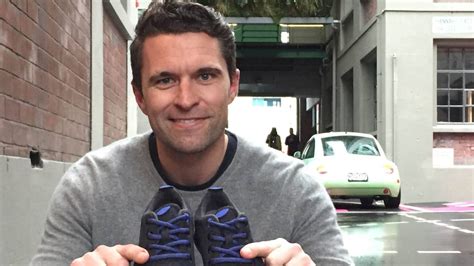A Quote by Clayton Christensen
Only the general manager can mold the resources, processes, and values that affect innovation , into a coherent capability to develop and launch superior new products and services repeatedly.
Related Quotes
People, materials, facilities, money, and time are the resources available to us for conducting our business. By applying our skills, we turn these resources into useful products and services. If we do a good job, customers pay us more for our products than the sum of our costs in producing and distributing them. This difference, our profit, represents the value we add to the resources we utilize.
80% of all products and services that will be on the market in five years do not exist today. So therefore, always be innovative, always be creative, always think, 'What new products or services could I create, could I represent, could I joint venture?" Sometimes you can find someone else that has a fabulous product or service that you can use your existing business or resources to sell and you can double your income or sales in your business by selling somebody else's product to the same customers that are buying yours.
The superior excellence imputed to the book, which imitates the products of antique and obsolete processes, is conceived to be chiefly a superior utility in the aesthetic respect; but it is not unusual to find a well-bred book-lover insisting that the clumsier product is also more serviceable as a vehicle of printed speech.
In every company which I have done strategic planning, the number-one value people choose is always integrity. The second values may be quality of products and services, caring about people, excellent customer service, profitability , innovation, entrepreneurship, and others. But integrity always comes first.
The role of business is to provide products and services that make people's live better - while using fewer resources - and to act lawfully and with integrity. Businesses that do this through voluntary exchanges not only benefit through increased profits, they bring better and more competitively priced goods and services to market. This creates a win-win situation customers and companies alike.
Implementing any major changes to the way companies operate requires time and determination and the shift to globally integrated innovation is no exception - it calls for new capabilities to be built, changes in the structure of the innovation organization, new systems, processes and mindsets. The scope and scale of this task shouldn't prevent executives from starting down the path of change as the systemic nature of innovation activities means that every single element of change that's brought about will make a difference.
Shifting Philip Morris to the new a non-risk products doesn't mean that I will give market share to my competitors free of charge. In the markets where we are not present with IQOS yet or the other reduced-risk products, you still need to defend your share of the market. They still represent the bulk of our income, and so far they have financed the billions of dollars we have put behind these new products. But once we go national in a market, and absent capacity constraints, then you shift your resources and your focus to these new products.


































